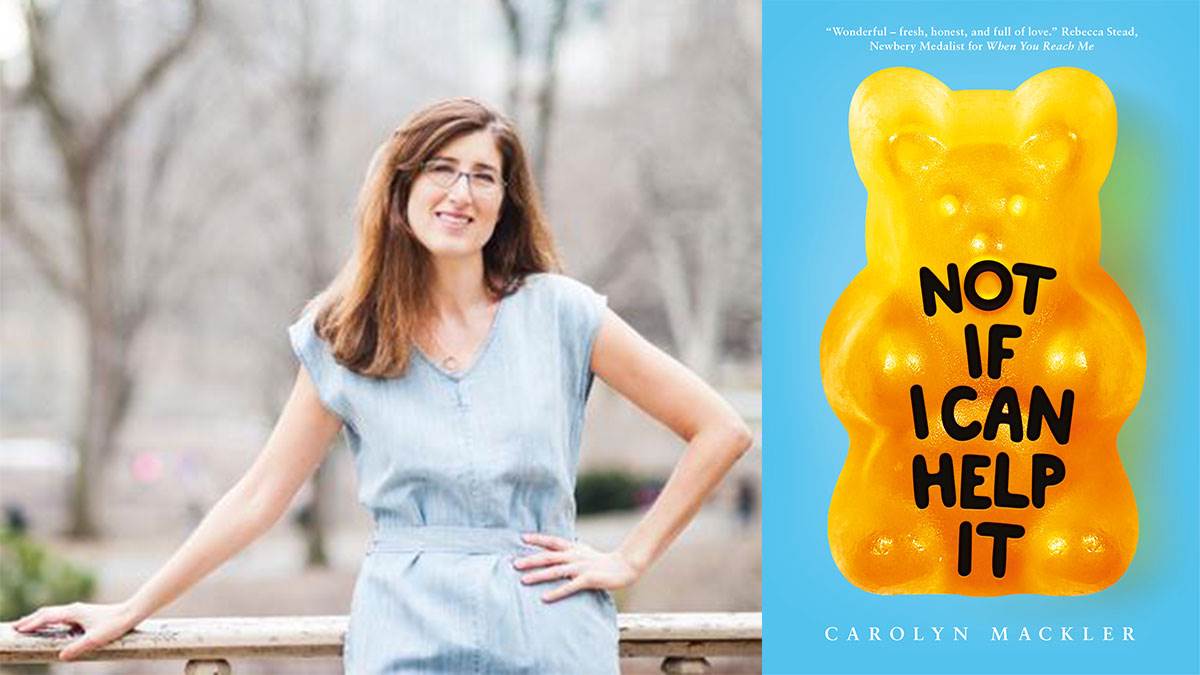Embracing our differences: Writing about an invisible disability
Published on: 3 Ionawr 2022 Author: Alex Strick
Carolyn Mackler's son had a sensory processing disorder when he was a child. That experience has fed into her latest book, Not If I Can Help It, which invites you to walk in the shoes of a character with the exact same condition.

To what extent were reading and writing important to you growing up?
Reading and writing were essential parts of my childhood. When I was growing up, I used to walk across town to the small public library with an empty backpack. I’d fill the backpack with novels, trek home, make a mug of hot chocolate, and then start reading from the stack. I also wrote in a journal throughout my childhood. My journal-writing ramped up during my teen years; it was my way of understanding everything that was going on.
Not If I Can Help It feels very authentic in terms of navigating friendships, families, challenges and change – in what respects do you write from personal experience?
I imagine that all my stories begin with my experiences – my takes on family, friendship, the ups and the downs. I use my experiences as a jumping off point to start imagining – and to transform that into fiction. Of course, some things I steal directly from my life, my kids’ lives, and my friends’ lives. For example, my friend’s daughter – who has total Willa curls – got a brush stuck in her hair during an emotional time in her life. I had to use that!
Presumably you drew a lot on the experience of your son who, like Willa, has sensory processing disorder?
My older son – now a teenager – had sensory processing disorder when he was younger. As he struggled to feel comfortable in his body, I wished there were novels that reflected his experience – feeling overwhelmed by noise, hating clothes with itchy seams, struggling with transitions.
That was one of the reasons I was inspired to write Not If I Can Help It – to create a character who was a regular kid but also had this (often invisible) disability going on behind the scenes.
Did he feed into the book himself to help you ensure such a convincing depiction of what it is like to have sensory processing issues?
My son was very involved as I wrote Not If I Can Help It. One of the best parts about creating a character with sensory processing disorder is that I got to interview my son. I got to say, “Describe what it’s like to be you. Describe how you experience the world.” And then I just listened. No judgements. One thing I learned is that, while I had been interpreting various manifestations as “struggles”, I was often wrong. He was having a blast.
What did you want to get across to readers most about this disorder or about difference / disability in general?
I love that readers can empathise with Willa, like her, and walk in her shoes. They can see that her disability is just one part of who she is. She also loves dogs and LEGO and reading and her best friend. As with any person who has a disability, it’s the person first. Not the disability.
Are we right that (like many challenges) individual experiences of sensory processing disorder can vary from one person to the next?
Oh, absolutely. Just like how every person is different in a million ways – their voice, their tastes in food, their sense of humour, how they perceive situations. Just like that, sensory processing disorder manifests itself differently in different people. Some people crave sensory input and love loud noises and crunchy foods, while other people want things quiet and smooth. And some people are a combo – but all in their own ways.
Would you agree that perhaps two of the strongest messages in the book are about accepting change and accepting our differences?
Well said! I may change it slightly to say it’s about embracing change instead of just accepting it. Throughout the story, and with support from her parents and soon-to-be-stepmom and her best friend and even her babysitter, Willa realises that change can be awesome. Scary, yes. Disruptive, yes. But it can add exciting new dimensions as well.
Do you think readers might ever see Willa again in any future books?
By the end of Not If I Can Help It, Willa grew in all the ways that I wanted her to. So, for now, I can’t imagine writing another book about her. But who knows? If Willa comes back to me with a twist, then I’ll always consider writing about her again.
Topics: Bookmark, Disability, Interview, Features





